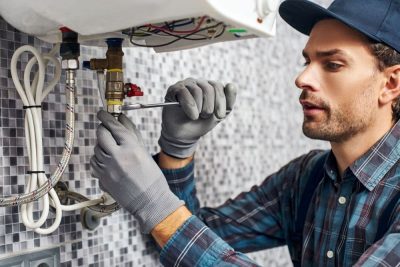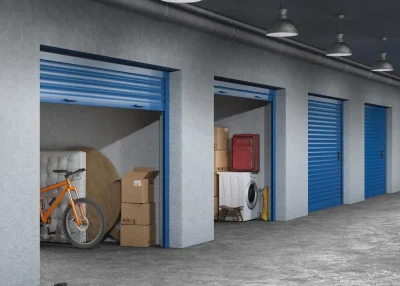
Who wants to live without a hot shower? I didn’t think so.
Let’s face it, most people neglect their water heater until something goes wrong. We all have a breakdown then have a cold shower until we get a replacement.
However, a few simple maintenance procedures can keep your water heater in tip-top shape.
Statistics reveal that eight million water heaters are sold each year in the United States. How many of those water heaters could have been saved if simple regular checkups were done?
Well, maybe thousands, if not millions. It is sad but true that most water heaters would have lasted longer if given proper attention.
Simple procedures like regular checkups, flushing, and filter changes can extend your water heater’s life. The best way to keep your water heater in the best condition possible is to work with a trusted water heater installer for professional inspection and maintenance on a regular basis. While most people do not care about the water heater, it can be one of the most expensive household appliances to replace. Routine maintenance could mean the difference between saving a few bucks and spending thousands on replacement.
We have taken the liberty of summarizing important points concerning the issue of water heater maintenance. Points which will be covered include; regular checkups, how long water heaters last, warning signs and the different types of water heaters.
Brief Outline of the Article
- Regular Checkups and Your Water Heater
- Warning Signs
- Different Kinds of Water Heaters
- Factors That Determine the Life of Your Water Heater
Regular Checkups and Your Water Heater
Water heaters are known to last for about a decade if properly maintained. This does not hold for most homes as we do not maintain our water heaters like we should. We leave them to do their job of heating our water until something goes wrong. We rush to replace them instead of maintaining them.
Water heaters have to work very hard to get us hot water for our bathing, laundry and other hot water needs. They do a good job when provided with proper maintenance and without maintenance, they will soon give up and die.
Your water heater should be inspected and maintained every year for optimum performance.
The maintenance procedures that a water heater goes through are; cleaning the top and checking the pressure valve and electrical connections, flushing sediment buildup from the tank, and testing the temperature and pressure relief valve.
Warning Signs
Your water heater will give some signs to alert you to the fact that something is not right. You just have to be careful to watch out for the signs. The following are the common signs your water heater needs maintenance;
Funny or Strange Sounds
One of the first signs that your water heater needs attention is the funny sounds you hear it make. The popping or banging noise from the water heater is an indication that something is not right. If you hear strange noises, it is a sign that the heating elements are causing sedimentation at the bottom of the heater to crack and create noises. Your water heater should be flushed to remove the sedimentation.
Color of the Water
The other sign you should look out for is the color of the water. The water that comes out of the hot water should be the same color as that of the water in the cold tap. If the water from your hot water tap is rusty or discolored, it is an indication that rust has formed inside the tank. The only way to get rid of the rust is to replace the tank.
Time It Takes to Heat Up
If you notice that it takes a long time for your water heater to heat up, this means there is an issue with your water heater. Your shower may not be getting hot or it runs out too quickly. This can be as a result of a defective heating element or a thermostat.
Moisture
The next thing to look out for is moisture at the base of your water heater. If you notice a leak on the outside of your water heater, it is a sign that it needs to be flushed.
Age
The last thing to consider is the age of your water heater. You should start thinking about it when it gets to be about ten years old. Most water heaters typically last between 8 to 12 years, and statistics show that 75% of water heaters fail before hitting the 12-year mark.
Different Kinds of Water Heaters
The good thing is that you have options when it comes to the type of water heater. Choosing the right one can have a positive effect on the water heater’s life. The different types are;
- Gas
- Electric
- Tankless
Gas
The gas water heater is a water heater that works by the combustion of gas to heat up the water. The same gas that is used for cooking can also be used for water heaters.
Electric
The electric water heater uses electricity to heat the water. Most homes have them and they are the easiest to install.
Tankless
Tankless water heaters do not store hot water and produce water on demand. They are also known as instantaneous water heaters.
Factors That Determine the Life of Your Water Heater
A combination of factors also determines the lifespan of your water heater. The factors are;
- Your family’s hot water usage habits
- Frequency of maintenance and flushing
- Water hardness or quality
- Installation quality
- Age
- Efficiency rating
- Faulty manufacturer parts
- Unexpected changes in water pressure
Make a Schedule
Create a schedule and have it stuck on your fridge. This way, you will not forget when it is time for the maintenance check of your water heater.
Keep Records
Another thing to do is to ensure that you keep records of the water heater maintenance performed. This is a necessary information that can be helpful in case anything goes wrong with your water heater. It can also help to know when something was last done.
Act Fast
Do not ignore the warning signs. If you notice any of the above signs, do not hesitate to call a professional to check your water heater.
Conclusion
We all desire our water heater to last as long as possible. The good thing is that it is not rocket science. All it takes is regular inspection and maintenance. This maintenance will not be expensive as you think. Annual maintenance and flushing cost less than an emergency replacement of your water heater.
The best part is that it will save you money in the long run. Maintenance will extend your water heater’s life. It will also give you value for your money and save you from untold agony in the long run.
Regular maintenance will not only keep your water heater going for long but also ensure that it works in the best way possible. The other advantage of regular maintenance is that it will save you money in energy consumption. A well-maintained water heater will work more efficiently, saving you money.
It is good to note that a well-maintained water heater may be a bit more expensive to buy, but it is worth the price. If a well-maintained water heater costs more, then you are better off to get one. As you can now see, when properly maintained, a water heater can last for a long time.








